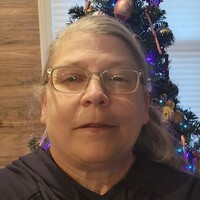Item
abstract
Heather Seger
“Heather Seger”. 2023, Sewanee: Black Lives Matter Oral History Project, accessed January 24, 2026,
- Title
- Heather Seger (Abstract)
- Interviewer
- Kaila Seger
- Date
- November 28, 2023
- Location of the Interview
- Over Zoom, narrator in her home in Nashville, Tennessee, the interviewer in her dorm room in Sewanee, Tennessee
- Length
- 1 hour, 2 minutes, 50 seconds
- Abstract
-
Heather Seger was born on October 7th, 1964 in Indianapolis, Indiana. She graduated from Hillsboro High School in Nashville, Tennessee and received her Associates degree in Automation Robotics from Nashville State Community College. She has worked in many fields through the years, including delivering papers and automotive repair. The interview starts with a discussion of where Heather is originally from, how she ended up in Nashville, where she found community, her past and present occupations, and what traveling she’s done.
The interview then reviewed how Heather receives the news. She talks of what news forms and stations she tends to watch and when, stating that she normally sticks to local news stations and NBC’s world news as well as watching segments of some Youtube channels focused on politics and news. She then discusses her experience with social media, revealing how she doesn’t really use any social media anymore, occasionally getting a glimpse of it on facebook. The conversation then moves on to how she first encountered the Black Lives Matter Movement through the news during Covid, specifically after the death of George Floyd. She then discusses her opinion on the Black Lives Matter Movement, stating that she believes it's a good thing, but goes into more depth over her thoughts on its general reception by other people and why she believes that reception exists.
Heather in the final part of the interview discusses in the impact of the Black Lives Matter Movement. The movement has not affected how she interacts with friends or family, or even how she talks to people in general about politics. She moves on to talk about how she sees race relations in the U.S as going backwards, discussing education specifically. The conversation moves on to discuss how the Black Lives Matter Movement hasn’t affected how she interacts with people of other races, having always treated people as people. She then discusses the successes and failures of the Black Lives Matter Movement, talking about how she sees it succeeding in the sense that more people are aware of issues like police brutality, but it’s not succeeding in the sense that she still feels like we’re moving backward instead of forwards. When talking about failures, she states that she doesn’t see the Black Lives Matter Movement itself as a failure, but that she thinks certain individuals within the Movement have failed. Bouncing off of her previous remarks, she brings up the Civil Rights Movement, and then elaborates on even though it has since stopped being called the Civil Rights Movement, the fight for civil rights hasn’t stopped abruptly. Heather doesn’t know what the future holds for the Black Lives Matter Movement, but she hopes that they continue to spread awareness and keep fighting to spread awareness. This interview is a part of the Black Lives Matter Oral History Project at Sewanee, The University of the South.
Part of Heather Seger

